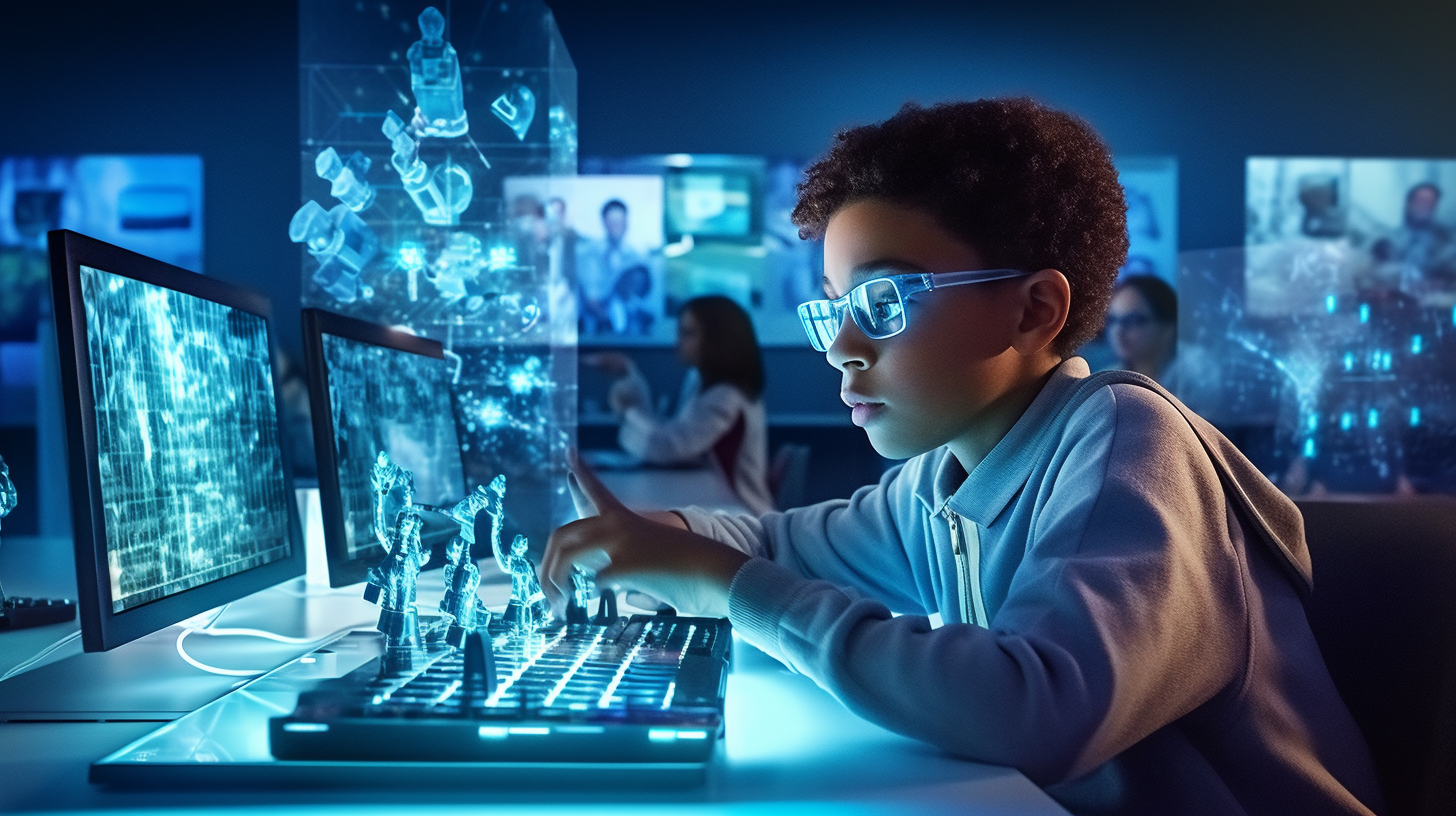Written by: Claudia Garcia

The arrival of technology has revolutionized almost every aspect of our lives, and education is no exception. In today’s digital age, Artificial Intelligence (AI) is reshaping the way we teach, learn, and interact with educational content. This blog post explores the role of AI in education, highlighting how it is improving learning through EdTech (Educational Technology).
AI: the catalyst for personalized learning
One of the most significant contributions of AI to education is personalized learning. AI-powered systems can analyze a student’s performance, learning style and pace, and then create personalized learning paths. This allows students to progress at their own pace, making education more accessible and tailored to individual needs.
In a traditional classroom, educators often face the challenge of adapting to diverse learning styles and abilities. AI can provide students with adaptive content and support, ensuring they receive the help they need to thrive.
AI tutors: Always there to help
Imagine having a personal tutor available 24/7. AI tutors can provide instant assistance to students, offering explanations, answering questions and providing feedback on assignments. This on-demand support not only helps students understand the material, but also increases their confidence in their learning abilities.
AI tutors can also help educators by automating certain tasks, such as grading assignments and tracking student progress. This allows teachers to spend more time teaching and less time on administrative work. But if what you’re looking for is a person who can guide your student and connect with them, you’ve come to the right place, because at Papaya Tutor we offer the above, for an affordable price and we have tutors that fit your time.
The power of data analytics
AI’s data analytics capabilities can reveal valuable information about student performance and learning patterns. This data can be used to identify areas where students are struggling and need additional support. Educators can then intervene early to help students overcome these challenges.
In addition, AI can help educational institutions refine their curricula and teaching methods. By analyzing data on student performance and engagement, schools can make data-driven decisions to improve the overall learning experience.
Accessible Learning with AI
AI breaks down geographical barriers and makes education accessible to a global audience. Online courses powered by AI can reach learners in remote areas who might not have had access to quality education otherwise. This inclusivity is a significant stride towards bridging educational disparities.
Furthermore, AI can provide accessible resources for students with disabilities. Text-to-speech and speech-to-text technologies, for example, can assist students with visual or hearing impairments.
AI’s Role in Lifelong Learning
Education is no longer confined to school years; it’s a lifelong journey. AI-driven platforms and EdTech solutions support learners of all ages in their quest for knowledge and skill development. Whether it’s acquiring a new language, mastering a musical instrument, or diving into a new field of study, AI can adapt to an individual’s learning goals and schedule.
We know that the role of Artificial Intelligence in education is transformative. Through EdTech, AI enables personalized learning, provides 24/7 support with AI tutors, harnesses the power of data analytics, enhances accessibility, and supports lifelong learning.
As technology continues to evolve, the synergy between AI and education holds immense promise. While AI is a powerful tool, it should be seen as an enhancement to, not a replacement for, educators. The human touch, mentorship, and guidance that teachers provide remain invaluable.
As we navigate the exciting landscape of AI in education, we find ourselves on the cusp of a new era, where the potential for enhanced learning experiences knows no bounds.
For further information, please contact us here.
2 responses to “The Role of Artificial Intelligence in Education”
The human element in education is still irreplaceable, and the combination of AI and teacher guidance seems like the perfect balance for improving learning outcomes .
Hello to every body, it’s my first visit of this webpage; this web
site contains amazing and in fact good data designed for readers. https://evolution.org.ua